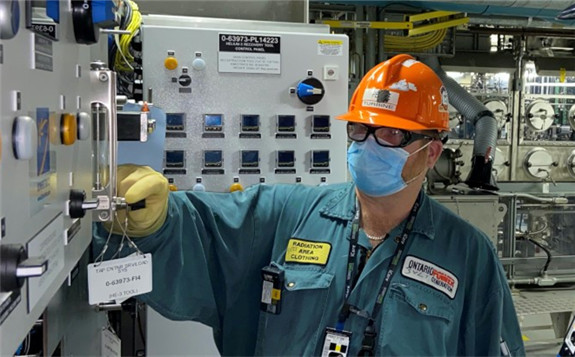Tritium stored at Canada's Darlington nuclear power plant will be a source of helium-3 for applications in quantum computing, medicine and security. Laurentis Energy Partners plans to extract and commercialise the isotope from the end of this year.

"By increasing the supply of this rare isotope, we can help save lives, advance high-tech industries and expand the frontiers of science," said Jason Van Wart, vice president of Laurentis.
The company is currently installing "a new custom-designed tool" at Darlington to extract helium-3. It intends to "develop a long-term commercial agreement ... to further refine and distribute the helium-3 to customers around the world in healthcare, security and advanced research."
"We are especially proud to be the first civilian, non-military source of helium-3," said Van Wart. Laurentis is a subsidiary of Ontario Power Generation, which owns and operates Darlington, a four-unit power plant producing 3512 MWe around 100 kilometres east of Toronto.
Helium-3 is a non-radioactive stable gas with a wide range of applications. It is used in security monitors at ports worldwide to detect radioactive materials; in science and quantum computing it is used to cool equipment to temperatures close to absolute zero; it is needed by particle accelerators; and as a stable and non-radioactive gas, it can enhance magnetic resonance imaging of the lungs.